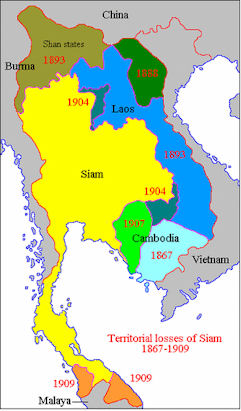

Zitierweise / cite as:
Payer, Alois <1944 - >: Chronik Thailands = กาลานุกรมสยามประเทศไทย. -- Chronik 1849 (Rama III). -- Fassung vom 2016-09-07. -- URL: http://www.payer.de/thailandchronik/chronik1849.htm
Erstmals publiziert: 2013-07-01
Überarbeitungen: 2016-09-07 [Ergänzungen] ; 2016-04-27 [Ergänzungen] ; 2015-09-12 [Ergänzungen] ; 2015-05-25 [Ergänzungen] ; 2015-05-09 [Teilung des Kapitels] ; 2015-05-08 [Ergänzungen] ; 2015-04-22 [Ergänzungen] ; 2015-03-16 [Ergänzungen] ; 2015-03-04 [Ergänzungen] ; 2015-01-24 [Ergänzungen] ; 2014-12-15 [Ergänzungen] ; 2014-11-13 [Ergänzungen] ; 2014-11-04 [Ergänzungen] ; 2014-10-27 [Ergänzungen] ; 2014-09-21 [Ergänzungen] ; 2014-08-20 [Ergänzungen] ; 2014-03-26 [Ergänzungen] ; 2014-03-08 [Ergänzungen] ; 2014-02-26 [Ergänzungen] ; 2014-01-13 [Ergänzungen] ; 2013-12-20 [Ergänzungen] ; 2013-12-05 [Ergänzungen] ; 2013-11-25 [Ergänzungen] ; 2013-11-05 [Ergänzungen] ; 2013-10-11 [Ergänzungen] ; 2013-09-28 [Ergänzungen] ; 2013-09-23 [Ergänzungen] ; 2013-09-17 [Ergänzungen] ; 2013-09-02 [Ergänzungen] ; 2013-08-23 [Ergänzungen] ; 2013-08-21 [Ergänzungen] ; 2013-08-14 [Ergänzungen] ; 2013-08-11 [Ergänzungen] ; 2013-07-13 [Ergänzungen] ; 2013-07-10 [Ergänzungen] ; 2013-07-08 [Ergänzungen]
©opyright: Dieser Text steht der
Allgemeinheit zur Verfügung. Eine Verwertung in Publikationen, die über übliche
Zitate hinausgeht, bedarf der ausdrücklichen Genehmigung des Herausgebers.
Dieser Text ist Teil der Abteilung
Thailand von
Tüpfli's Global Village Library
ช้างตายทั้งตัวเอาใบบัวปิดไม่มิด
|
Gewidmet meiner lieben Frau Margarete Payer die seit unserem ersten Besuch in Thailand 1974 mit mir die Liebe zu den und die Sorge um die Bewohner Thailands teilt. |
|
Bei thailändischen Statistiken muss man mit allen Fehlerquellen rechnen, die in folgendem Werk beschrieben sind:
Die Statistikdiagramme geben also meistens eher qualitative als korrekte quantitative Beziehungen wieder.
|
1849 - 1850
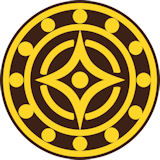
Erster Kentung-Krieg (ၵဵင်းတုင် - เชียงตุง)
Abb.: Lage von Kentung (ၵဵင်းတုင် - เชียงตุง), Chiang Mai (เชียงใหม่), Lampang (ลำปาง), Lamphun (ลำพูน), Chiang Rai (ชียงราย)
[Bildquelle: OpenStreetMap. -- Creative Commons Lizenz (Namensnennung, share alike)]Die Nördlichen Fürstentümer stellen folgende Truppen von Zwangsrekrutierten:
5000 Mann: Chiang Mai (เชียงใหม่)
1000 Mann: Lampang (ลำปาง)
1500 Mann: Lamphun (ลำพูน)
Die 7500 Soldaten sind auf 8 Divisionen aufgeteilt und bilden zwei Heere zum gleichzeitigen Angriff auf Kentung.
Von jeder Schar von 30 Lao-Soldaten dienen jeweils nur 4 bis 5 im Kampf, der Rest dient als Diener der Adligen oder macht "Stubendienst". Für 4000 Mann stehen 600 Musketen und schwerere Gewehre zur Verfügung. Ein großer Teil der Soldaten fällt Malaria und Cholera zum Opfer.
1849
Cholera-Epidemie. In Bangkok vermutlich 40.000 Tote, auf dem Höhepunkt 1.500 Tote täglich.
Da der Palast sein Wasser aus Quellen auf dem Land bezieht, bleibt er von der Cholera weitgehend verschont.
Der Missionar und Arzt Dr. med. Samuel Reynolds House (1817 - 1899) schreibt über die Epidemie:
"It is the Siamese custom to burn their dead, but so fearfully did deaths multiply that ... multitudes of corpses were thrown without ceremony as you would throw the carcass of a dog into the river. These dead bodies could be seen any day floating back and forth with the tide before our doors, in all stages of putrefaction - on some of them crows perched, picking away at their horrid feast." [Zitiert in: Americans in Thailand / ed. by Nicholas Grossman. -- Singapore : Didier Millet, 2015. -- 304 S. : Ill. ; 25 cm. -- ISBN 978-981-4385-84-8. -- S. 53]
1849
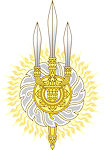
Rama III. stoppt den Druck des Three Seals Code (กฎหมายตราสามดวง) in der Ausgabe von Phraya Krasaponnakit (Mot Amatyakun) [พระยากระสาปนกิจโกศล (โหมด อมาตยกุล), 1820 - 1896]. Von den beiden geplanten Bänden ist nur der esrte in der Nationalbibliothek erhalten.
1849 (?)

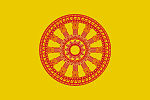
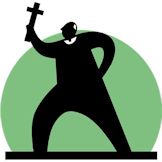
Der Mönch Vajirañāṇo Bhikkhu (วชิรญาณภิกขุ = Prinz Mongkut - มงกุฎ, 1804 - 1868) an den protestantischen US-Missionar Samuel Reynolds House (1817 - 1899):
"wat thong [วัดทอง]
Monday morningDear Sir
I am now at the "Wat thong Bangkok noi [บางกอกน้อย]" with my Uncle & teacher highest Priest Prince "Krommanujit-" [สมเด็จพระมหาสมณเจ้า กรมพระปรมานุชิตชิโนรส
, 1790 - 1853] who is rendering funiral offering of his mother two days ago. the highest Priest and his peels [peers? ] several princes desire to communicate with English for be strangers in festival as they have heard that the English strangers accustomed to be called on festival of me before. Therefore they petitioned me to write invitation to Captn Brown & Missionaries to be called at Wat thong today evening before 7 o’clock to be attained the time of fire work which will be pleasent. and they wish to give glad riward (money put in limon fruit) to you who arrived their festival by Siamese custom and feed you with any padable food. Will you please to accept their invitation ? I think that all or a few or but one of your missionaries must come. I think they will be glad. You also can distribute your book to several high head priests of various Wats because many of them will be assembled here on that time I can introduce you to let them listen you preaching your religious subject too. Please answer to me firstly if you will not exicute this invitation. I shall inform to them to assemble for your visitation and hear you teach them or accept your booksyour [s] truly
T. Y. Chaufa [เจ้าฟ้า]
Mongkut [มงกุฎ]
P. S.
Please inform to other missionaries by meant of this letter.
This note though addressed to me, was of course intended for all the Missionaries. The invitation to discourse upon Christianity before the assembled head-priests of various wats-may pass a specimen of oriental compliment-and perhaps of oriental insincerity- though-it may be His Royal Highness would have been glad-had time allowed-to have got up a kind of discussion-between Missionaries & his Buddhist friends-Pray do not let this note get into print, - curiousity as it is every way."
[Zitiert in: Renard, Ronald D. <1938 - > ; Swanson, Herbert R. <1946 - >: Notes on a letter from Prince Mongkut to Dr. S. R. House. -- In: Journal of the Siam Society. -- 70 (1982). -- S. 130f.]
1849
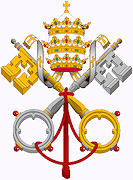
Der katholische Bischof Jean-Baptiste Pallegoix (1805 - 1862) reist die Strecke Bangkok - Ayutthaya (อยุธยา) - Phra Phutthabat (พระพุทธบาท)
Abb.: Bangkok - Ayutthaya (อยุธยา) - Phra Phutthabat (พระพุทธบาท)
[Bildquelle: OpenStreetMap. -- Creative Commons Lizenz (Namensnennung, share alike)]
1849

สมเด็จพระมหาสมณเจ้า กรมพระปรมานุชิตชิโนรส [Paramanuchit Chinorot] <1790 - 1853>: สมุทรโฆษคำฉันท์ตอนปลาย [Samutthakot, im Chan-Versmaß, letzter Teil]
สมเด็จพระมหาสมณเจ้า กรมพระปรมานุชิตชิโนรส [Paramanuchit Chinorot] <1790 - 1853>: ร่ายทำขวัญนาค ["Spirit soothing for the royal ordained"]
สมเด็จพระมหาสมณเจ้า กรมพระปรมานุชิตชิโนรส [Paramanuchit Chinorot] <1790 - 1853>: ปฐมสมโพธิกถา [Erzählung über die erstmalige erlösende Einsicht Buddhas]
Abb.: Einbandtitel einer modernen Ausgabeสมเด็จพระมหาสมณเจ้า กรมพระปรมานุชิตชิโนรส [Paramanuchit Chinorot] <1790 - 1853>: พระธรรมเทศนา [Predigten über die buddhistische Lehre]
สมเด็จพระมหาสมณเจ้า กรมพระปรมานุชิตชิโนรส [Paramanuchit Chinorot] <1790 - 1853>: พงศาวดากรุงศรีอยุธยา [Chronik von Ayutthaya]
สมเด็จพระมหาสมณเจ้า กรมพระปรมานุชิตชิโนรส [Paramanuchit Chinorot] <1790 - 1853>: กลอนเพลงยาวเจ้าพระ
1849
สมเด็จพระเจ้าบรมวงศ์เธอ พระองค์เจ้ามั่ง กรมพระยาเดชาดิศร [Dechadison] <1793 - 1859>: โคลงโลกนิติ [Weltweisheit]
Abb.: Einbandtitel einer modernen Ausgabeสมเด็จพระเจ้าบรมวงศ์เธอ พระองค์เจ้ามั่ง กรมพระยาเดชาดิศร [Dechadison] <1793 - 1859>: โคลงนิราศปราบขบถเวียงจันทน์ [Über den Feldzug nach Vientiane (ວຽງຈັນ)]
1849
พระเจ้าบรมวงศ์เธอ พระองค์เจ้านวม กรมหลวงวงศาธิราชสนิท [Krommaluang Wongsathiratsanit] <1809 - 1872>: จินดามณี [Chindamani]
1849
พระมหามนตรี (ทรัพย์) [Pra Maha Montri (Sap)]: ระเด่นลันได [Raden Landai]. -- Satirische Verserzählung über den Bettler Raden Landai.
Abb.: Einbandtitel einer modernen Ausgabeพระมหามนตรี (ทรัพย์) [Pra Maha Montri (Sap)]: เพลงยาวว่าพระมหาเทพ [Pleng yao wa Phraya Mahathep]. -- Satirische Verserzählung gegen Phraya Maha Thep. -- Das Manuskript wird beschlagnahmt, aber viele kopieren es im Geheimen.
1849

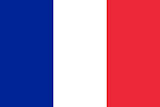
Es erscheint
Pallegoix, Jean-Baptiste <1805 - 1862>: L'histoire sainte. -- Bangkok, 1849
1849

Samuel Jones Smith (1820 - 1909), Pflegesohn des US-amerikanischen protestantischen Missionars John Taylor Jones (1802 – 1851) kommt nach seiner Ausbildung in den USA nach Siam zurück und gründet bald das Druck- und Verlagshaus Bangkolem Press.
1849

Nach Bangkok kommen 5 britische Schiffe.
1849

Aufhebung der Navigationsakte (Navigation Act) von 1651. Damit ist der Handelsverkehr nach England und seine Kolonien nicht mehr nur auf englische Schiffe beschränkt.
"For the increase of the shipping and the encouragement of the navigation of this nation, which[1] under the good providence and protection of God is so great a means of the welfare and safety of this Commonwealth: be it enacted by this present Parliament, and the authority thereof, that from and after the first day of December, one thousand six hundred fifty and one, and from thence forwards, no goods or commodities whatsoever of the growth, production or manufacture of Asia, Africa or America, or of any part thereof; or of any islands belonging to them, or which are described or laid down in the usual maps or cards of those places, as well of the English plantations as others, shall be imported or brought into this Commonwealth of England, or into Ireland, or any other lands, islands, plantations, or territories to this Commonwealth belonging, or in their possession, in any other ship or ships, vessel or vessels whatsoever, but only in such as do truly and without fraud belong only to the people of this Commonwealth, or the plantations thereof, as the proprietors or right owners thereof; and whereof the master and mariners are also for the most part of them of the people of this Commonwealth, under the penalty of the forfeiture and loss of all the goods that shall be imported contrary to this act; as also of the ship (with all her tackle, guns and apparel) in which the said goods or commodities shall be so brought in and imported; the one moiety to the use of the Commonwealth, and the other moiety to the use and behoof of any person or persons who shall seize the goods or commodities, and shall prosecute the same in any court of record within this Commonwealth." [Navigation Act 1651-10-09. -- http://www.constitution.org/eng/conpur_ap.htm. -- Zugriff am 2012-01-20]
1849

Es erscheint:
Thoreau, Henry David <1817 - 1862>: The Resistance to Civil Government. -- In: Aesthetic Papers / ed. by Elizabeth P. Peabody. -- Boston, 1849. -- S. 189 - 213. -- Späterer Titel: On the Duty of Civil Disobedience
Abb.: a.a.O. -- S. 189
1849

Der Belgier Alphonse Halbou lässt den Doppel-T-Träger patentieren.
Abb.: Doppel-T-Träger, 2008
[Bildquelle: David Craig. -- https://www.flickr.com/photos/caspian_tern/2437723480. -- Zugriff am 2016-04-27. -- Creative Commons Lizenz (Namensnennung, share alike)]
1849

Colt Model 1849 Pocket Pistol wird bis 1873 350.000 mal hergestellt.
Abb.: Colt Model 1849 Pocket Pistol (Nachbau)
[Bildquelle: mike cumpston / Wikipedia. -- Public domain]
1849

Der schottische Physiker David Brewster stellt die erste Stereokamera (Zweiobjektiv-Kamera) vor.
Abb.: Stereoskopische Aufnahmen / von Charles Négre (1820 - 1879), ca. 1851
Abb.: Brewster-Stereoskop zum Betrachten stereoskopischer Bilder
[Bildquelle: Wikipedia. -- Public domein]
1849-03

Der US-Chinaklipper Sea Witch bewältigt die Strecke Hong Kong - New York in 74 Tagen. Dieser Segelschiffrekord wird erst 2003 mit 73 Tagen gebrochen!
Abb.: Sea Witch / von einem unbekannten chinesischem Maler
1849-03-04 - 1850-07-09

Zachary Taylor (1784 - 1850) ist Präsident der USA.
Abb.: Wahlplakat 1848
[Bildquelle: Wikipedia. -- Public domain]
1849-03-14
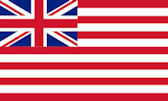
Die indische Sikh-Armee kapituliert vor den britischen Truppen. Der Punjab wird der britischen East India Company einverleibt.
Abb.: Lage des Sikh-Reichs 1848 (rosa: britisches Gebiet)
[Bildquelle: Joppen: Atlas of India. -- 1914. -- Pl. 30]
1849-06
Cholera-Epidemie
"Cholera in Bangkok. Recent letters from Siam inform us of the almost unprecedented ravages of the cholera in the capital during the past summer. The disease came from the southwest, and first made its appearance about the middle of June. The following extracts from a letter of Dr. House, dated July 13th, convey a good idea of the scene the city presented. "This city has been dreadfully ravaged by the epidemic cholera during the last three weeks. More than 20,000 were officially reported to the king as its victims in Bangkok alone during the first twelve days of its prevalence, and the number that have been swept away by it since would doubtless swell the aggregate to 30,000; while the pestilence was at its height, it must have carried off over 2000 souls a day. Oh, what heart-sickening scenes have passed before our eyes of late! Corpses were often thrown into the river as the shortest mode of disposing of them, and floated in scores with the tide back and forth before our eyes - among them babes, on some of which the crows were perched, glutting themselves as the bodies drifted along; in one day 175 bodies were counted from the deck of a ship moored in the stream. Go where we would in the streets, we would meet men bearing away their dead upon their shoulders, slung fromm pole ; and by the wayside, or in the porches of gates, yon might see a friendless Chinese struck down with disease, unable to go farther, and dying unpitied and uncared for by the passer by.
"But the most horrid spectacles were at the wats or temples, where Siamese custom requires the dead to be brought for burning ; here during the worst time there would be brought 200, 300, and even 375 corpses, in a single day. The horrid reality of what might here be seen surpasses all the conceptions the ancient poets had of Tartarus, or all that Dante or Milton ever conceived of the regions of the lost. I have seen in one of these gehennas, hundreds of loathsome corpses in every stage of putrefaction, lying unburied, unburned, just where they had been thrown by friends too poor, or perhaps too penurious, to provide fuel for their burning, the sun and rain doing their work awfully, till the king's bounty, or the charity of some rich Chinese, would furnish the necessary wood, and consume them together. I have seen sixty bodies thrown together in one pile, and over thirty in a smaller one near, roasting, frying, burning, with a thick black smoke going up from the dreadful pyre, skulls, bones, and legs half consumed, and limbs projecting, till the men in charge would thrust and twist them back with long poles into the blazing heap. I trust I shall never again see such a sight on earth. From an area of an acre the flames of single pyres would be continually arising; and when evening came, the night air would be loaded with such an odor of burning flesh and singeing hair!—But why do I dwell on these disgusting details.
"To those already in a collapse, I found it was next to useless to give remedies ; but when there was still a pulse at the wrist and warmth at the extremities, a great measure of success attended the exhibition of medicines. We found no great difficulty in checking the disease if treatment was commenced in season. A mixture of 1 dr. laudanum, 1 dr. essence of peppermint, ½dr. spts. ammonia, in 8 oz. of water, taken in doses of a wineglass every hour, as soon as the premonitory symptoms were perceived, we have found efficacious. When the disease had made any progress, we resorted to calomel, giving it in doses of 20 grs. or 40 grs., as the case might be, with 2 grs. of opium, and then 20 gr. doses without opium every hour or half hour, till the symptoms were arrested.
Abb.: Ausbreitung der Cholera
[Bildquelle: Bartholomew, J. G. <1860 - 1920>: A literary & historical atlas of Asia. -- London, o. J.]"This scourge has been experienced twice in Siam; in 1819, when it was more severe, though shorter in its duration, than now; and again in 1822, when it was milder. It was first heard of this year as prevailing about Penang, whence it crossed the Malay Peninsula to Ligore [Nakhon Si Thammarat - นครศรีธรรมราช
] some months ago, reaching Bangkok June 17th, and a few days after breaking out in Ayuthia [Ayutthaya - อยุธยา], 60 miles north, where it has been very fatal."Several of our households have been sick., but none have died. Mr. M.’s boy Nak, whose father died some days before, and whose mother was seized to-day, owes his own recovery, under Providence, to the curative powers of a hundred grains of calomel taken in about 6 hours. The proportion of deaths to the number of cases evinces a fearful mortality. I know of households of noblemen numbering in all four or five scores, which have lost 19, some 17, or 14, and but two or three of those attacked recovering. In some of the wats, 30 and more priests have been taken. The average mortality in Europe is about one half of the cases, but the ratio is far higher here, and few places, I imagine, have in the same' space of time been more severely scourged than Bangkok. Whether the filthy condition of their dwellings, underneath the best of which all manner of filth and garbage is suffered to accumulate and putrefy, or whether the profusion of crude and watery fruits which are eaten, contributes most to the sad result, may be hard to decide. The deaths have not been confined to any particular race or class. One of the earliest victims was Anawasab, a Moor merchant from Madras, a much respected old friend of mine. Chau Khun Bodin, late commander-in-chief on the Cambodia frontier, and Chau Fa Umpawn, son of the late king, are both victims ; as are also a prince of the blood, and one of His Majesty 's wives, and several grandsons.""
[Quelle: The Chinese repository. -- Vol. XVIII. (January to December 1849). -- Canton, 1849. -- S. 503f.]
1849-06


Acht französische katholische Priester wollen nicht am Verdienst-Tun zur Abwendung der Cholera-Epidemie teilnehmen, indem sie ihr Vieh dem König übergeben und so die Schlachtung der Tiere verhindern. Diese acht Priester werden des Landes verwiesen. Die übrigen katholischen Geistlichen und die protestantischen Missionare betrachten die Übergabe der Tiere als staatlichen Akt und und nicht als religiöse Zeremonie und erleichtern so ihr Gewissen. Bischof Jean-Baptiste Pallegoix (1805 - 1862) sagt, er habe in der Bibel nachgeschaut und nirgends gefunden, dass es Katholiken verboten sei, Vögel und Fische freizulassen. Pallegoix kauft einige Tiere und schickt sie dem König, damit dieser damit mache, wie es ihm gefällt.
1849-06-04
Tod von Chaophraya Bodinthondecha (เจ้าพระยาบดินทรเดชา, 1777 - 1849)
"Chaophraya Bodindecha oder Bodinthondecha[1][2] (thailändisch เจ้าพระยาบดินทรเดชา, bürgerlicher Name Sing oder Singh, als Familienname Singhaseni, สิงห์ สิงหเสนี; * 1777 in Bangkok; † 24. Juni 1849 in Siam) war ein einflussreicher Politiker und General der frühen Rattanakosin-Ära. Während der Herrschaft von König Rama III. (reg. 1824 bis 1851) war er Innenminister (สมุห์บัญชี) und Armeegeneral (แม่ทัพใหญ่). Um 1838 war er der Chefminister unter König Rama III.[3] Frühe Zeit
Sing wurde während der Thonburi-Periode 1777 in Bangkok als Kind von Chaophraya Abhayraja (Pin) (เจ้าพระยาอภัยราชา - ปิ่น) und dessen Frau Fag (ฟัก) geboren. Abhayaraja schickte seinen Sohn nach 1782 in den Dienst des Thronfolgers, des Prinzen Itsarasundhorn (สมเด็จพระเจ้าลูกเธอเจ้าฟ้ากรมหลวงอิศรสุนทร), der seit 1809 bis 1824 als König Rama II. regierte. Während dieser Zeit war Sing als Beamter und machte die Bekanntschaft des Prinzen Chetsadabodin (ร มหาเจษฎาบดินทร์ฯ), der später als Rama III. (reg. 1824 bis 1851) herrschte. Als der Prinz 1824 den Thron bestieg, machte er Sing zum Phraya Ratchasuphawadi (พระยาราชสุภาวดี).
Kämpfe in LaosDie erste Bewährungsprobe kam 1826, als König Anuvong (ເຈົ້າອານຸວົງສ໌, 1767 - 1829) von Vientiane (ວຽງຈັນ) einen Aufstand gegen den Suzerän in Bangkok wagte und in den Nordosten des Landes, den Isan (อีสาน), einmarschierte. Der König sandte seinen Onkel und Thronanwärter Sakdiphonlasep (สมเด็จพระบวรราชเจ้ามหาศักดิพลเสพ, 1785 - 1832) zusammen mit Phraya Ratchasuphawadi (Sing) in den Isan, um den Aufstand zu unterdrücken. Nach dem Erfolg der Kämpfe ließ dieser Vientiane dem Erdboden gleichmachen. Mehr als 100.000 Lao wurden aus ihrer Heimat umgesiedelt, sodass das mittlere Laos praktisch entvölkert war. Anuvong wurde nach Bangkok gebracht und sollte dort öffentlich zu Tode gefoltert werden, konnte jedoch Selbstmord begehen. Sing dagegen stand in königlicher Gunst, erhielt den Titel Chaophraya Ratchasuphawadi und wurde zum Innenminister ernannt. Später erhielt er noch den besonderen Titel Bodindecha (บดินเดชา), der aus Silben des Namens des Königs zusammengesetzt ist.
Bodindecha war für seine große Brutalität berüchtigt. Laut dem thailändischen Historiker Natthawut Sutthisongkhram gab es „niemand[en] in der Reichweite seiner Hand“, dessen Rücken er noch nie durch Schläge mit der Peitsche, die er stets bei sich trug, gezeichnet hatte.[2] Deserteure richtete er konsequent hin. Er soll sogar in der Schlacht mit einer langen Lanze hinter seinen Truppen hinterhermarschiert sein, mit der er ihnen in den Rücken pikte, um sie vorwärts zu treiben.[4]
Bodindecha hatte auch ein eigenes wirtschaftliches Interesse an den Kriegen, die er führte. Er war eng mit der Gouverneursfamilie von Nakhon Ratchasima (นครราชสีมา, Korat - โคราช) verbunden und verdiente am Handel mit Produkten aus den Lao- und Khmerstaaten mit, an dem sich die Bangkoker Elite in der ersten Hälfte des 19. Jahrhunderts bereicherte.[5]
Kämpfe in KambodschaDer Innenminister hatte im Regierungssystem von Siam traditionell auch militärische Aufgaben zu erfüllen. Bodindecha erhielt die volle Verantwortung während des Siamesisch-Vietnamesischen Krieges, der 1841 ausbrach und vier Jahre dauerte. Beide Länder hatten schon lange um Kambodscha gestritten, und als der König 1841 eine siamesische Armee unter Bodindecha entsandte, um den Siam genehmen Prinzen Ang Duong (ព្រះបាទ អង្គ ឌួង, 1796 -1860)auf den Thron von Kambodscha zu setzen, rief dies Annam (安南, Vietnam) auf den Plan. Bodindecha konnte Udong (ឧដុង្គ) und Phnom Penh (ភ្នំពេញ) unter seine Kontrolle bringen. Nach vielen Kämpfen erhielt 1845 nach Verhandlungen beider Parteien Ang Duong den Thron von Kambodscha. Bodindecha verblieb noch bis 1848 in Kambodscha, um mit seiner Truppe den Frieden zu sichern. Nach seiner Rückkehr nach Bangkok starb er am 24. Juni 1849 an der Cholera.
WirkungZahlreiche Einrichtungen in Thailand tragen den Namen Bodindecha, so z. B.
- das Bodindecha-Museum (Thai: พิพิธภัณฑ์เจ้าพระยาบดินทรเดชา (สิงห์ สิงหเสนี))
- die Bodindecha-Schule in Bangkok
- die Nawaminthrachinuthit Bodindecha-Schule in Bangkok
- das Bodindecha-Lager in Yasothon (ยโสธร) (Ban Doet, Tambon Doet (เดิด), Amphoe Mueang Yasothon (เมืองยโสธร)); seit dem 23. Dezember 1985 Heimat der Königlichen Thailändischen Armee
Auch wurden ihm persönlich oder seinen Siegen Denkmäler errichtet.
In den Gebieten der Khmer und Lao löste die bloße Erwähnung des Namens Bodindechas noch Jahrzehnte nach seinem Tod Angst und Schrecken aus. Geschichten seiner Grausamkeit wurden in Mo-Lam-Liedern (ລຳ/หมอลำ) der Lao an spätere Generationen überliefert."
[Quelle: https://de.wikipedia.org/wiki/Bodindecha. -- Zugriff am 2015-07-03]
1849-08-20

Memorial of the Chamber of Commerce at Singapore an den britischen Außenminister Henry John Temple, 3. Viscount Palmerston (1784 - 1865):
"SINGAPORE Unto the Right Honourable Viscount Palmerston, G. C. B., M. P. Her Majesty's Principal Secretary of State for Foreign Affairs
The Memorial of the Chamber of Commerce at Singapore, Humbly
Sheweth,That your Memorialists venture again most respectfully but earnestly to call your lordship’s attention to the subject of trade with Siam and Cochin-China, and to the Memorial which they had the honour to address to your lord-ship relative thereto in the month of October, 1848.
That the state of the trade with Siam has not undergone any improvement since the date of the above Memorial, but that on the contrary, it has very much fallen off, and has been subjected to new restrictions and impediments, the effect of which has been to throw almost the whole trade into the hands of the king and his ministers.
That the heavy measurement duty exacted from English vessels prevents their being sent to Siam, except in a very few cases; and the foreign merchants there have been in the habit of chartering, or loading goods on private Siamese vessels- paying no duty, or only a very moderate one, enabled the merchant to export his goods with some prospect of advantage. That this has lately been prohibited the king's ships being the only Siamese vessels now available to the foreign trader for the export of his goods to Singapore, or elsewhere. That the king’s vessels are nearly all in bad order, some of them being overrun with white ants, exposing goods shipped on them to great risk, and rendering it impossible or difficult to effect insurance on such goods.
That British property is thus kept locked up in Siam, the profit on trade diminished, or altogether swept away, and merchants elsewhere are prevented from sending goods there, from the impossibility of procuring returns without incurring a delay and risk, which lessens the chance of deriving any profit therefrom.
That the trade with Cochin-China, being carried on without the consent of the government of that country, is exposed to risks which would not exist, were it prosecuted under the sanction of treaties or recognized relations between the government of Great Britain and Cochin-China. That the Cochin-Chinese vessels, which come annually to Singapore, being sent out in a clandestine manner, and prohibited by the Cochin-Chinese government from carrying any means of defence, are peculiarly exposed to the attacks of the Chinese and Malay pirates, with which unfortunately the seas between Singapore and Cochin-China still abound, and a considerable number annually fall into the hands of these pirates, by whom they are plundered, the unfortunate Cochin-Chinese in most cases being made slaves, and their vessels burned, or destroyed. That English vessels proceeding to Cochin-China for the purpose of trading, can only obtain, leave to do so by purchasing the connivance of the Cochin-Chinese officers, and in some cases are altogether forbidden to dispose of their goods, which they are forced to carry elsewhere and dispose of-frequently at a loss.
That the disposition of the new king Cochin-China is represented as being favourable to a more friendly intercourse with our government, and to the permitting his subjects to trade with foreigners; and your Memorialists would therefore respectfully suggest, that an early opportunity should be taken of endeavouring to establish relations with the goverment of Cochin-China, which are calculated to promote and extend British trade in that quarter.
That your Memorialists having witnessed with much pleasure the able and successful measures lately taken by his Excellency Sir James Brooke [1803 - 1868], K. C. B., to secure and extend our interests at Sulu and on Borneo, and believing that the conciliatory manner of that gentleman in his intercourse with native princes, is eminently calculated to ensure success in the required negociations, venture respectfully to suggest that Sir James Brooke is a person well fitted for the conduct of any mission which your lordship may deem it expedient to send to Siam and Cochin-China, and that the required measures might in this way be carried out at a comparatively trifling cost, and without loss of time; the ships of war or steamers stationed in these seas being made available for the conveyance of such mission.
Your Memorialists therefore humbly pray that your lordship will be pleased to take this memorial into your favourable consideration, and adopt such measures as may seem to be necessary under the circumstances therein stated.
Signed in name of and by direction of the Chamber of Commerce at Singapore.
GEO. G. NICOL [George Garden Nicol, 1810 - 1897], Chairman.
Singapore, 20th August 1849."[Zitiert in: Manich Jumsai [มานิจ ชุมสาย] <1908 - 2009> ; Monkut <König, Siam> [พระบาทสมเด็จพระปรเมนทรมหามงกุฎ พระจอมเกล้าเจ้าอยู่หัว] <1804 - 1868> ; Bowring, John <1792 - 1872>: King Mongkut and Sir John Bowring (from Sir John Bowring's personal files, kept at the Royal Thai Embassy in London). -- Bangkok, Chalermnit, 1970. -- 240 S. : Ill. ; 27 cm. -- S. 14ff.]
1849-12-18

Anweisungen des britischen Foreign Office an Sir James Brooke (1803 - 1868):
"To make [mit Siam] some arrangement that would effect an improvement in the British commercial relations with that country ... The treaty ought also to provide for the exclusive jurisdiction of British authorities over British subjects ... In conducting these negotiations you must be very careful not to get involved in any dispute of hostile proceedings which would render our position in Siam ... worse than it now is, or which might compel Her Majesty's Government to have recourse to forcible measures in order to obtain redress. It is very important that if your efforts should not expose us to the alternative of submitting to fresh affront or of undertaking an expensive operation to punish insult ..." [Zitiert in: Manich Jumsai [มานิจ ชุมสาย] <1908 - 2009> ; Monkut <König, Siam> [พระบาทสมเด็จพระปรเมนทรมหามงกุฎ พระจอมเกล้าเจ้าอยู่หัว] <1804 - 1868> ; Bowring, John <1792 - 1872>: King Mongkut and Sir John Bowring (from Sir John Bowring's personal files, kept at the Royal Thai Embassy in London). -- Bangkok, Chalermnit, 1970. -- 240 S. : Ill. ; 27 cm. -- S. 21]
1849/50


Der König wird zunehmend feindlich gegen christliche Missionare. Er wirft den protestantischen Missionaren vor, dass sie auf ihrer Presse ohne Erlaubnis staatliche Gesetze gedruckt haben, ihre Bibelübersetzungen heilige Worte aus dem Buddhismus enthalten, sie den Buddhismus als Irrglauben darstellen.
ausführlich: http://www.payer.de/thailandchronik/ressourcen.htm